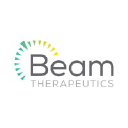Companies
Discover all trending biotech companies
Discover all trending biotech companies

Company Research Platform
Annual Revenue
$ 63,600,000
Global Employees
181
The Hematology segment focuses on developing precision genetic medicines for blood disorders, including sickle cell disease and beta thalassemia. Research and development activities include base editing technologies to correct the genetic mutations causing these diseases. The company is utilizing its BEAM-101 and BEAM-102 programs, which are in clinical trials. This segment aims to provide potentially curative therapies for patients suffering from these debilitating conditions, improving their quality of life and reducing the need for chronic treatments. Market positioning is based on the potential of base editing to offer more precise and efficient gene correction compared to traditional gene therapy approaches. Partnerships and collaborations are crucial for clinical trial execution and commercialization. Future opportunities include expanding the application of base editing to other hematological disorders and improving the efficiency and safety of the therapies. Regulatory and clinical aspects involve rigorous clinical trials to demonstrate safety and efficacy, and seeking regulatory approvals for commercialization.
The Oncology segment is dedicated to developing innovative cell-based therapies for the treatment of various cancers. The primary focus is on BEAM-201, an allogeneic chimeric antigen receptor (CAR) T cell therapy for relapsed/refractory T-cell acute lymphoblastic leukemia (T-ALL). Research and development efforts involve engineering T cells to recognize and eliminate cancer cells. The segment utilizes advanced technologies such as base editing to enhance the efficacy and safety of CAR-T cell therapies. The goal is to provide effective treatment options for patients with difficult-to-treat cancers, improving their survival rates and quality of life. Market positioning is based on the potential of base editing to improve the precision and durability of CAR-T cell therapies. Future opportunities include expanding the application of CAR-T cell therapies to other cancer types and improving the manufacturing process. Regulatory and clinical aspects involve conducting clinical trials to demonstrate safety and efficacy, and seeking regulatory approvals for commercialization. Partnerships and collaborations are essential for clinical trial execution and commercialization.
This segment focuses on developing precision genetic medicines for liver diseases, including Glycogen Storage Disease Type Ia (GSDIa) and Alpha-1 Antitrypsin Deficiency (AATD). Research and development activities involve using base editing to correct genetic mutations in liver cells. The company is developing BEAM-301 for GSDIa and has programs targeting AATD. The aim is to provide potentially curative therapies for patients with these conditions, improving their liver function and overall health. Market positioning is based on the potential of base editing to offer targeted and durable gene correction in the liver. Future opportunities include expanding the application of base editing to other liver diseases and improving the delivery of therapies to the liver. Regulatory and clinical aspects involve conducting clinical trials to demonstrate safety and efficacy, and seeking regulatory approvals for commercialization. Partnerships and collaborations are important for clinical trial execution and commercialization.